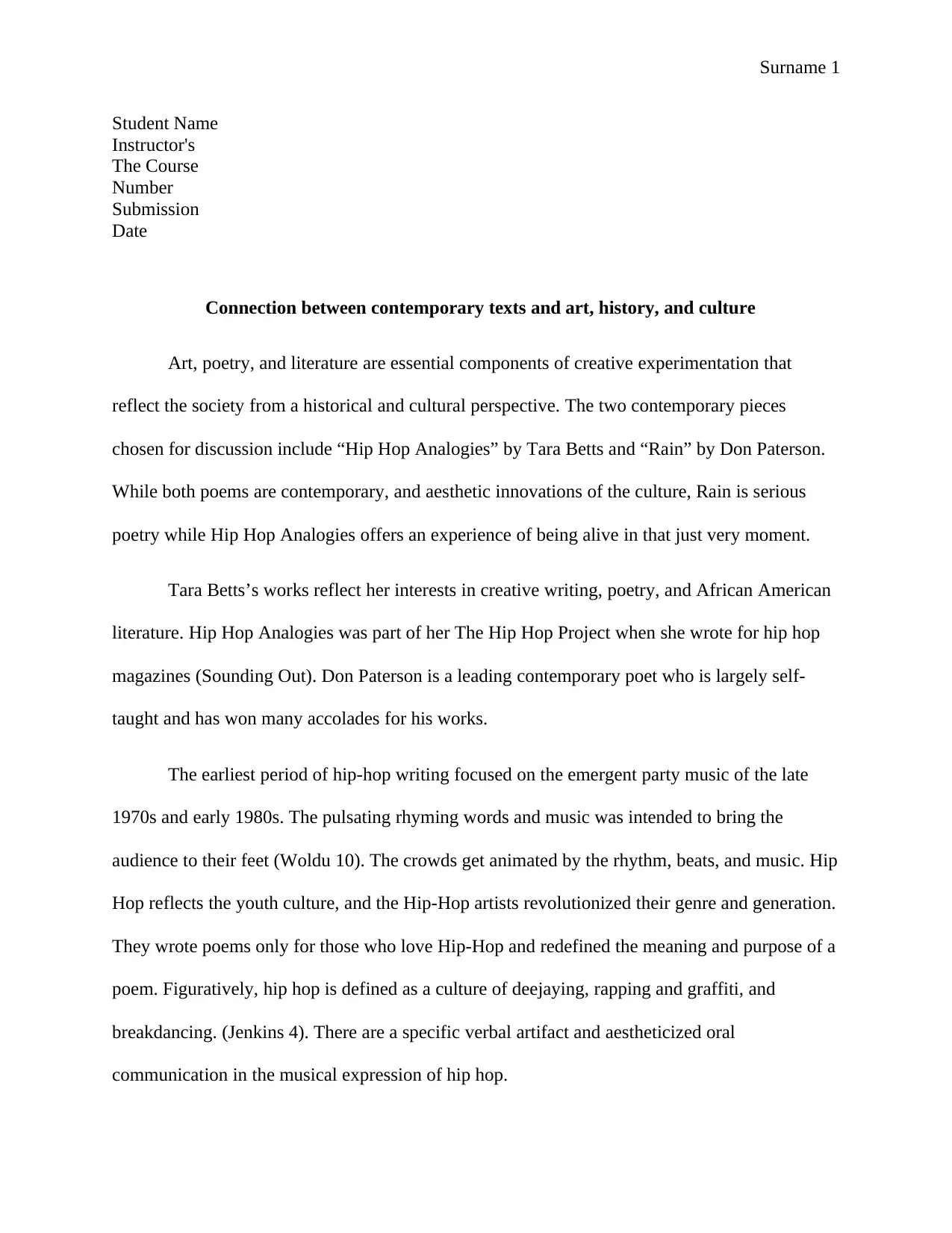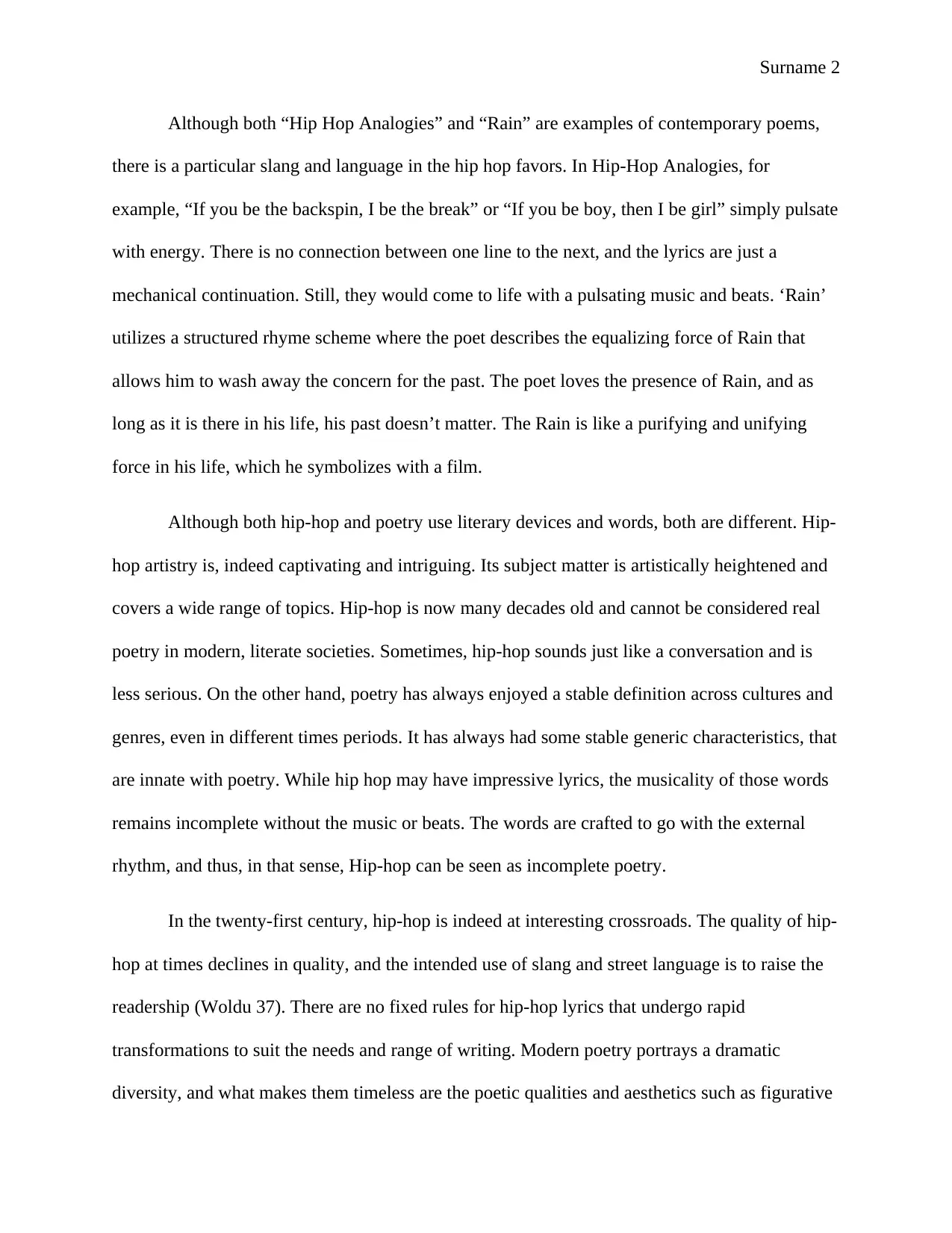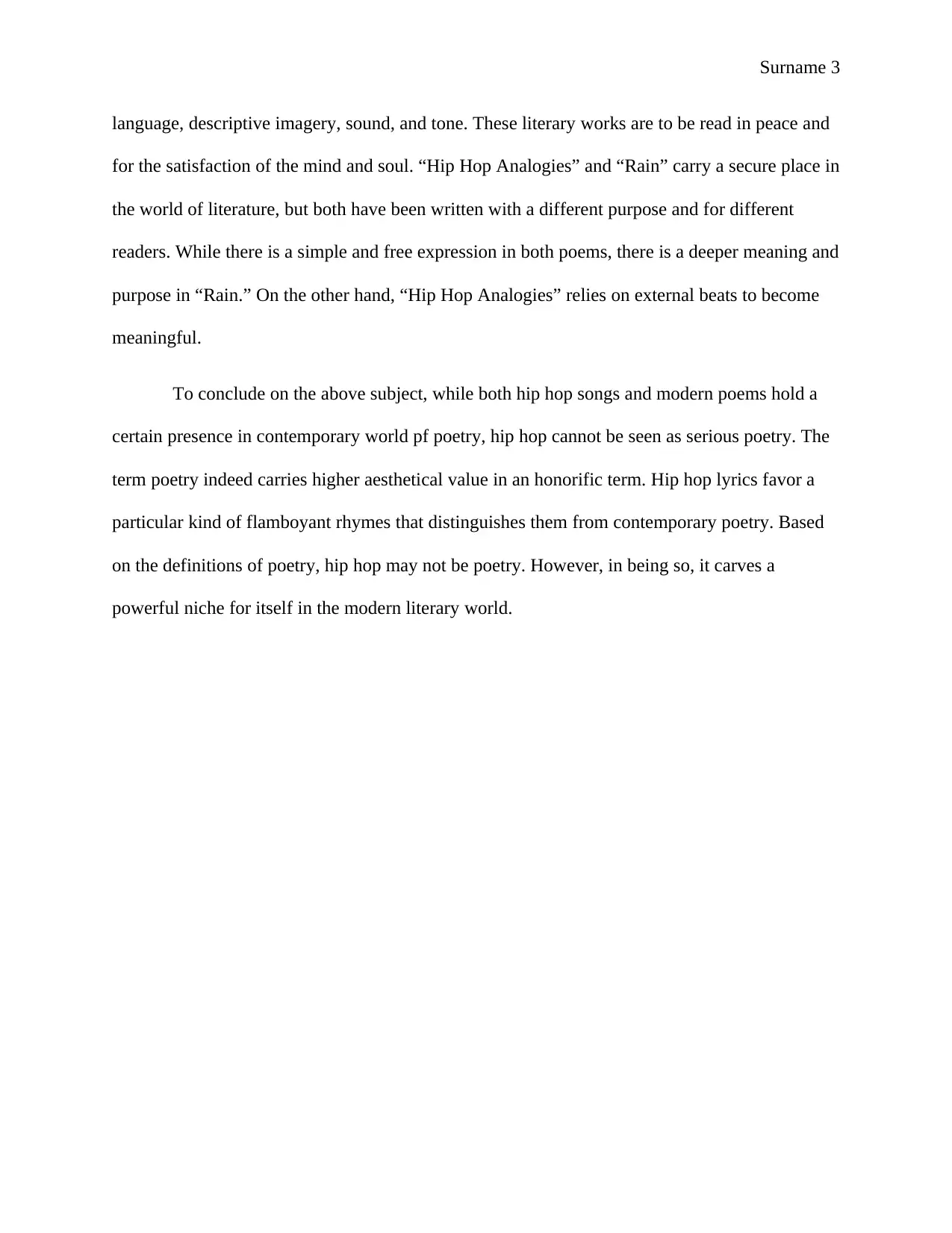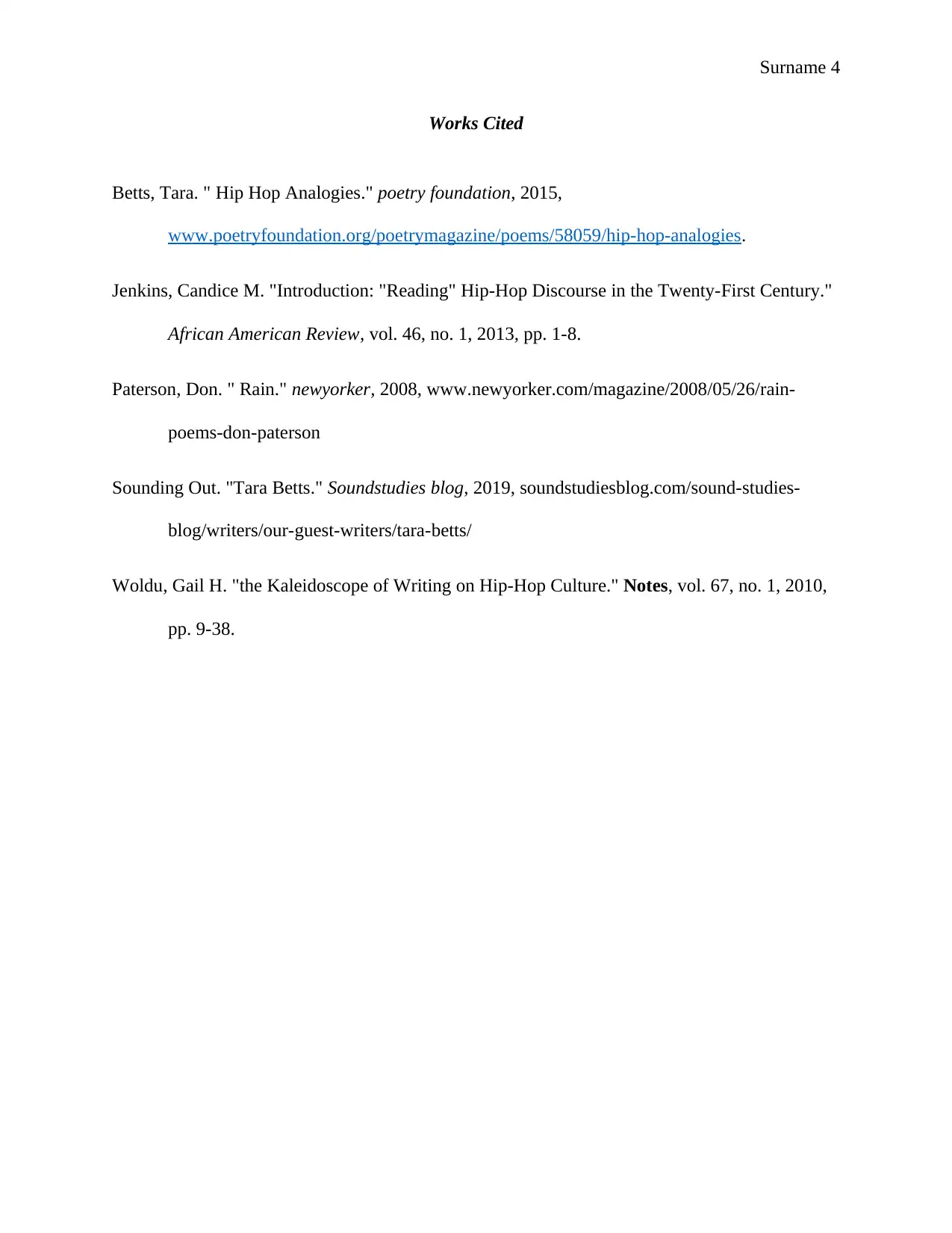Contemporary Poetry: Hip Hop Analogies and Rain Comparative Essay
VerifiedAdded on 2022/09/27
|4
|1015
|54
Essay
AI Summary
This essay provides a comparative analysis of Tara Betts' "Hip Hop Analogies" and Don Paterson's "Rain," exploring their distinct approaches to contemporary poetry. The essay highlights the contrasting styles, with "Hip Hop Analogies" reflecting the energy of hip-hop culture through its slang and rhythmic structure, while "Rain" employs a more structured rhyme scheme to convey themes of purification and the acceptance of the past. The analysis delves into the literary devices, cultural contexts, and intended audiences of each poem, ultimately arguing that while both hold a place in the modern literary world, their purposes and aesthetics differ significantly. The essay examines the role of music and beats in hip-hop, and how it differs from traditional poetry. Works cited include scholarly articles and the poems themselves, providing a comprehensive overview of the subject matter.
1 out of 4





![[object Object]](/_next/static/media/star-bottom.7253800d.svg)